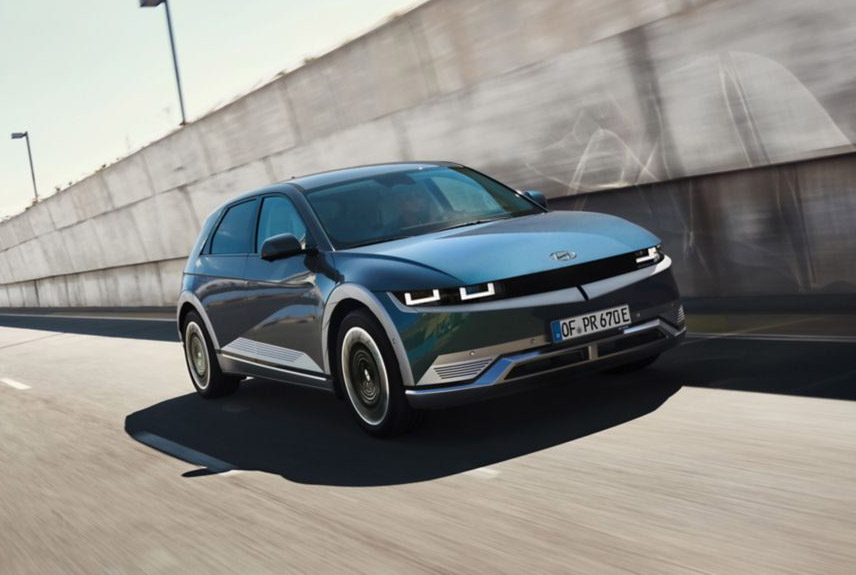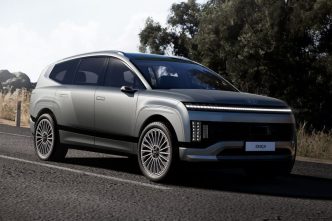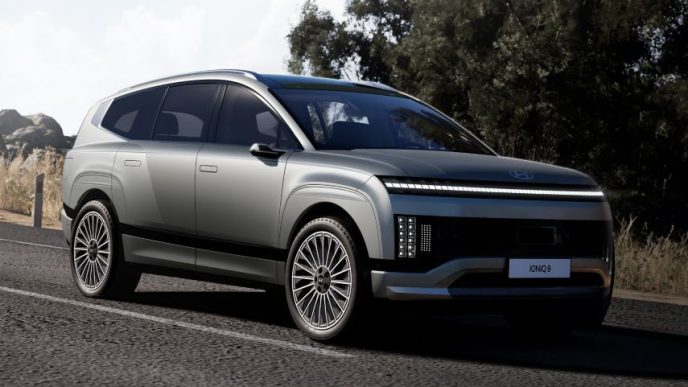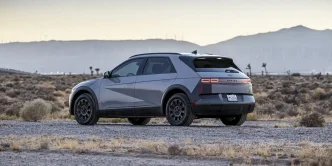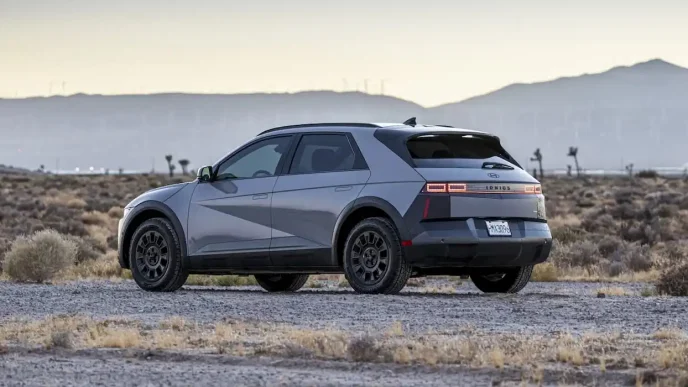Hyundai Motor Company has introduced two electric last-mile mobility concepts, the E3W and E4W, at a motor show in India, as part of its exploration into the electric two- and three-wheeler market. The South Korean automaker is in discussions with Indian manufacturer TVS Motor Company for a potential partnership to produce and market these vehicles. The announcement coincided with the launch of Hyundai’s first locally manufactured electric vehicle, the Creta Electric.
The E3W is an electric rickshaw, while the E4W is an electric microcar, both designed to address urban mobility needs. Under the proposed collaboration, Hyundai would be responsible for design, engineering, and technology, while TVS would handle manufacturing and marketing.
See also: Everything You Should Know About Hyundai Creta EV

SangYup Lee, Executive Vice President and Head of Hyundai and Genesis Global Design, stated that the company aims to innovate in the last-mile mobility segment. “Collaborating with TVS Motor, we aim to locally produce the three-wheeler while exploring global opportunities for the four-wheeler,” Lee said.
Hyundai indicated that it is closer to finalizing a deal with TVS for the E3W, while the development of the E4W remains under review, with a focus on its potential for global markets.
Both the E3W and E4W feature a blue paint called ‘Aakashi’—Hindi for ‘Sky’—reflecting their Indian identity. The E3W has a rectangular windshield, while the E4W’s windshield narrows asymmetrically toward the bottom, both designed to improve visibility. The vehicles are compact, ensuring ease of movement in narrow streets and heavy traffic, with adjustable height to navigate waterlogged roads during monsoon seasons.
See also: Hyundai Opens EV Battery Plant in India to Support Local Electric Vehicle Production

Key features include car-like angular side mirrors, 13-inch wheels with aerodynamic covers, and a wide front screen that displays greetings. While the screen could potentially show reservation numbers or names, Hyundai may exclude this feature in production models to manage costs.
The interiors of both concepts adopt a modern, minimalist design, differing from traditional vehicles in this category. The dashboard includes a slim colour display showing essential driving information such as speed, navigation, and battery status. Open storage bins, USB ports, and pegboard-inspired panels add practicality.
The E3W, designed as an autorickshaw, features a handlebar with an integrated smartphone holder, catering to drivers who use ride-hailing apps. The driver’s seat includes under-seat storage, while the rear features a foldable bench and a ramp system for wheelchair accessibility. Hyundai officials suggested that this accessibility feature could become standard across its last-mile mobility lineup.
See also: Hyundai Plans 600 Fast EV Charging Stations in India to Boost Adoption

The E4W, a microcar, includes a steering wheel with a morse code-inspired “H” design, a steering column-mounted gear selector, and two front seats with under-seat storage. The rear divider has holes for mounting accessories like a sanitiser, portable fan, and umbrella holder, along with space for a first aid kit.
Hyundai is already planning production versions of the E3W and E4W, with adaptations for India’s climate. The company is considering heat-reducing gloss black paint for the roof and water-resistant materials for interior surfaces to withstand harsh summers and monsoons.
The unveiling of the E3W and E4W concepts comes as Hyundai launches the Creta Electric, its first locally manufactured EV in India. The potential partnership with TVS Motor aligns with Hyundai’s broader strategy to expand its presence in the electric mobility sector, particularly in emerging markets.
See also: Hyundai and Charge Zone to Expand EV Charging Network in India
“This collaboration marks a significant step in reimagining last-mile mobility,” said Hassen Rachedi, CEO of Hydrogen Refuelling Solutions, in a related statement. “By combining expertise, we aim to accelerate the adoption of sustainable transport solutions globally.”







